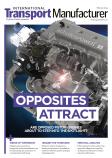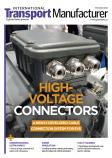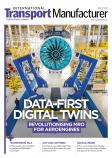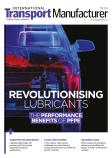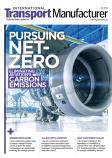Launched in 2019, Cabin Management Solutions (CMS) is a small, privately held in-flight cabin management and entertainment systems company in Texas, USA.
CMS works with aircraft maintenance, repair, and overhaul (MRO) companies and private owners to design and develop cabin control and entertainment systems for luxury private and business jets. The company was founded to provide a cost-effective, quick-turn alternative to the long lead times and high costs associated with cabin management maintenance, upgrades, and replacements. Though CMS is relatively new, its two founders, Jeff Pike and Jeff McCormick, each have over 25 years of experience in the avionics industry.
The challenge
CMS is often asked to replace or repair ageing cabin systems in luxury jets. Many projects involve discontinued parts and components originally produced by now-defunct manufacturers. The majority of these projects require CMS to create low-volume, high-value parts from scratch. Specific items can range from overhead reading lights, thermostats, panel switches, USB chargers, in-seat entertainment screens, and everything in-between. Many of these completed parts will be visible to the naked eye, so retaining and maintaining their upscale aesthetics is almost as important as ensuring functionality.
One-off projects can be time- and labour-intensive to manufacture. They are also fairly complex as they often involve fitting new designs into pre-existing layouts. It’s not unusual for customer requests to change mid-production. As such, the CMS team frequently needs to be prepared for last-minute, on-the-fly modifications. Most importantly, all aircraft materials and parts must be thoroughly tested and traceable to qualify for Federal Aviation Administration (FAA) approval.
“Markforged printers have helped us get to the point where we can compete with the big companies in this industry,” says Jeff Pike, Vice President of Engineering Cabin Management Solutions.
The CMS team designed and 3D printed hundreds of parts for a single aircraft. CMS has been electroplating custom decretive bezels made from Markforged Onyx FR with continuous carbon fibre. All parts and materials used on any aircraft must be FAA compliant and approved before they can be installed.
The solution
Soon after CMS opened its doors in 2019, the team purchased two Markforged industrial X7 3D printers. They immediately saw the value of 3D printing when compared with conventional manufacturing and materials. Additive manufacturing made it possible for CMS to keep the majority of its operation in-house rather than outsourcing production, as so often happens when using traditional methods. This has been hugely beneficial to the company in terms of the number of jobs it takes on and the speed at which it is able to complete them.
CMS prints all of its parts on the two Markforged X7 printers using Onyx FR, a certified UL 94 V-0 rated flame-retardant nylon filled with chopped carbon fibre. With this, CMS delivers custom parts, such as in-flight entertainment retrofits, that are high-strength, low-weight and flame-retardant. To meet the specific demands of its luxury-oriented customers, the team then adds an extra level of customisation via overlays that mimic upscale cabin surfaces including gold electroplating, wood veneer, and more. This ensures the end product is FAA compliant while going above and beyond customer aesthetics and expectations.
On one jet in particular, the CMS team printed at least 100 different parts using the X7. This included roughly 29 light switch panels, a cabin climate controller, latches, release buttons, USB-C and drop-in USB-A chargers, adjustable touch screen brackets, and more. The majority of those printed parts were then electroplated with gold-plated bezels to match the pre-existing interior design of the cabin. This resulted in more durable parts that looked and felt as upscale as the originals.
“In the aerospace industry, quality and on-the-fly adaptability are crucial to success. Markforged more than delivers on both fronts,” says Pike
The future
CMS has big plans for the future, especially with Markforged’s recent release of two new materials: Onyx FR-A and Carbon Fibre FR-A. Both materials come with full material traceability and are undergoing qualification on the Markforged X7 printer via a programme conducted by the National Centre for Advanced Materials Performance (NCAMP), one of two bodies authorised by the FAA to qualify materials for flight. Once this process is complete, CMS will be able to increase its overall production speed, which will result in adding even more jobs to its already expanding pipeline.






